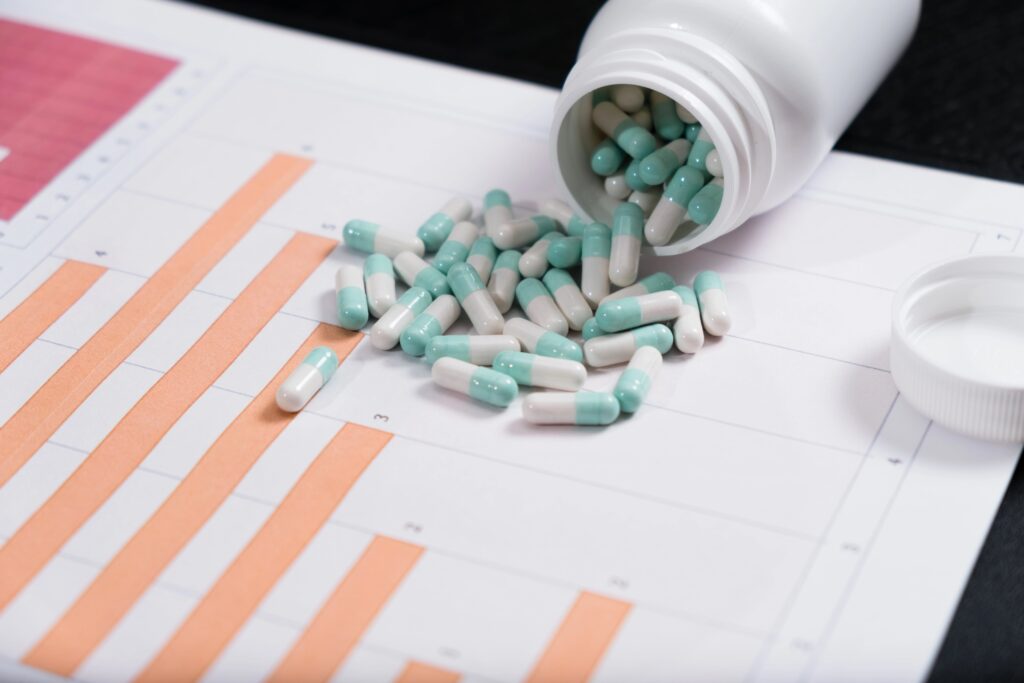
Table of Contents
Managing costs effectively in small pharmaceutical clinical trials is essential for success. Controlling budget expenses can lead to better outcomes and increased efficiency throughout the clinical trial process. Many factors, from recruitment costs to site management, can impact your bottom line. Understanding these elements allows you to make informed decisions and optimize your resources.
You may face various challenges in the clinical trial process, but prioritizing cost management can make a significant difference. Focusing on planning, tracking expenses, and evaluating vendor contracts can ensure that your project stays within budget. Adopting best practices can help maintain quality while keeping costs manageable.
Exploring innovative strategies for cost containment will benefit you greatly. Whether you are a small firm or an established player, knowing how to streamline processes will enhance your ability to conduct effective clinical trials. With the right approach, you can achieve both quality results and financial sustainability.
What Are the Major Costs Associated with Clinical Trials?
Clinical trials require careful financial planning. Understanding the major costs can help you manage budgets effectively. The costs associated with drug development can vary by trial phase and patient enrollment.
Understanding the Cost of Drug Development
The cost of developing a new drug is significant. According to studies, the average cost can exceed $2 billion. This figure includes many aspects such as research, clinical trials, and regulatory approvals.
One major cost component is the clinical trial budget. It covers expenses like site fees, patient recruitment, and data management. Each of these components can add up quickly. A poor estimate can lead to budget overruns and financial strain.
Estimated Cost per Patient in Clinical Trials
The estimated cost per patient in clinical trials varies. On average, it can range from $6,000 to $35,000. This cost depends on various factors, including complexity and trial phase.
Recruitment costs can also play a large role. Finding eligible patients takes time and resources. Additionally, the type of treatment being tested can influence the overall expenses. Trials involving complex treatments often have higher costs per patient.
Average Cost of Clinical Trials by Phase
Costs increase as clinical trials progress through phases. In Phase I, the average cost is typically lower, around $1 million to $5 million. These trials focus on safety and dosing.
Phase II trials tend to cost more, generally ranging from $7 million to $20 million. These studies assess effectiveness and side effects in a larger group of participants.
Phase III trials are the most expensive, often exceeding $20 million. They test the drug on larger populations and involve extensive regulatory scrutiny. Understanding these costs at each phase helps in budgeting for successful drug development.
How Can Small Pharma Optimize Their Clinical Trial Budget?

Effective management of clinical trial budgets is vital for small pharmaceutical companies. When you focus on design, partnerships, and strategic tactics, you can significantly cut costs and enhance budget efficiency.
Implementing Cost-Effective Trial Designs
Designing trials with cost in mind can make a big difference. Use adaptive trial designs based on early data to allow for modifications during the study. This flexibility can save time and resources.
Outline clear eligibility criteria to streamline patient selection. Fewer, well-defined criteria can speed up recruitment. Consider utilizing digital tools for patient engagement, which can reduce dropout rates and costs tied to patient retention.
Think about the phases of the trial and the number of sites. Fewer sites or focusing on sites that have a high enrollment rate can reduce expenses.
Utilizing Clinical Research Organizations (CROs) for Cost Management
Partnering with clinical research organizations can be an affordable solution for managing costs. CROs bring expertise and can scale services based on your specific needs.
Many CROs offer flexible pricing models tailored for small pharma. You can choose services ranging from full-service trials to specific components like data management or monitoring.
Consider the benefits of working with a CRO that has established relationships with sites and regulatory bodies. This can speed up processes and reduce delays that often lead to increased costs. Look for CROs with proven track records in clinical trial cost management to make informed choices.
Strategies for Reducing Costs in Trial Conduct
To minimize costs during trial conduct, prioritize efficient operations. Create a detailed budget with contingencies to handle unforeseen expenses.
Regularly review your spending against this budget. This practice helps identify areas where savings can be made.
Leverage technology, such as electronic data capture systems, to streamline data collection and management. These tools often reduce manual labor and increase accuracy, leading to cost savings.
Involve all team members in cost discussions. When you foster a culture of cost awareness, you can generate ideas for savings from diverse perspectives.
What Role Does the FDA Play in Clinical Trial Costs?
The U.S. Food and Drug Administration (FDA) significantly influences clinical trial costs through its approval processes and regulations. Understanding these impacts can help you manage budgets effectively during drug development.
Understanding FDA Approval and Its Impact on Costs
The FDA approval process involves multiple phases, which can drive up costs for pharmaceutical companies. To gain approval, companies must conduct extensive clinical trials that often include multiple sites and large participant groups. This requirement can lead to inflated budgets due to the resources needed for patient recruitment, monitoring, and compliance with FDA regulations.
Additionally, the FDA has established guidelines for what constitutes adequate evidence of safety and efficacy. This means that you may need to perform additional studies if the original trial doesn’t meet these criteria, further increasing costs.
How Regulatory Compliance Affects the Clinical Trial Budget
Regulatory compliance is a critical factor in managing clinical trial costs. The FDA requires strict adherence to Good Clinical Practice (GCP) guidelines. Compliance requires substantial documentation and monitoring, which can create extra expenses in both time and labor.
You may also face financial penalties if your trial does not meet the FDA’s requirements. These penalties can include additional costs for audit preparations or even restarting trials to meet compliance standards. Therefore, investing in good compliance practices can ultimately save you money in the long run.
Cost of Developing a New Drug: FDA Considerations
The costs associated with developing a new drug often hinge on the FDA’s processes. Research and development (R&D) can take years, with expenditures potentially reaching billions. According to some estimates, the average cost of bringing a new drug to market, including trials, exceeds $2.5 billion.
The FDA’s Prescription Drug User Fee Act (PDUFA) can also influence costs. It allows the FDA to collect fees from drug manufacturers to expedite the review process. While this could reduce time to market, it also adds a layer of financial responsibility for you as a developer. Balancing these fees against potential market returns is essential in planning your budget effectively.
How to Effectively Manage Clinical Trial Data?

Managing clinical trial data is essential for improving efficiency and reducing costs in small pharmaceutical companies. This involves ensuring data accuracy, streamlining processes, and leveraging technology to handle vast amounts of information effectively.
Importance of Data Management in Reducing Costs
Effective data management helps prevent costly errors. When data is accurate and well-organized, the likelihood of needing to redo studies or address compliance issues decreases. This can save significant time and resources.
Moreover, managing data efficiently allows for better budget control. You can track expenses related to data collection and analysis closely. This oversight helps you identify unnecessary costs, making it easier to allocate funds more effectively.
Finally, having a solid data management plan fosters better collaboration among team members. Clear guidelines on data usage and sharing promote teamwork, ensuring everyone is on the same page.
Solutions for Efficient Clinical Trial Data Handling
To manage clinical trial data efficiently, consider implementing standardized processes. Having a consistent method for collecting and analyzing data can streamline operations. This minimizes confusion and promotes accuracy across the project.
Training your team is also vital. Ensure that all members understand the data management processes. Regular training updates can help staff stay informed about best practices and any software changes.
Regular audits of data processes can identify areas for improvement. These reviews can highlight inefficiencies, allowing you to make proactive adjustments before they lead to significant issues.
Utilizing Technology for Clinical Trial Systems
Technology plays a key role in effective data management. Clinical trial management systems (CTMS) can help centralize data. With a CTMS, you can streamline data entry, monitor real-time progress, and ensure compliance.
Electronic data capture (EDC) tools also enhance data handling. They allow you to collect data directly from trial sites, reducing the chance of errors during manual entry. Additionally, cloud-based solutions offer secure storage, ensuring data is backed up and easily accessible for analysis.
Analytics tools provide insight into data trends, which can inform decision-making and improve trial designs. Using advanced technology not only saves time but also helps you make better, data-driven choices.
What Are the Best Practices for Small Pharma in Conducting Clinical Trials?
Effective clinical trial management is essential for small pharmaceutical companies. Focusing on established best practices can streamline processes and improve outcomes. Here are key areas to address.
Adhering to Good Clinical Practice (GCP)
You must prioritize Good Clinical Practice (GCP) throughout your trials. GCP ensures the safety, integrity, and quality of clinical research. This includes strict adherence to ethical standards.
Training your team on GCP principles is essential. Regular workshops can reinforce these guidelines and keep everyone informed about updates in regulations. Monitoring conducted trials closely allows you to identify any deviations.
Maintaining detailed documentation is also critical. All trial data and decisions should be accurately recorded for transparency. This builds trust and credibility with regulatory bodies and partners.
Choosing the Right Clinical Trial Sites
Selecting suitable clinical trial sites is vital for success. You should evaluate each location for its ability to recruit participants and provide reliable data. Focus on sites with a strong track record in similar studies.
Consider the staff’s experience and availability of necessary resources at each site. Engaging with local healthcare professionals can also enhance recruitment efforts. Building relationships with investigators can help streamline site activation and communication.
Moreover, assess geographical diversity. This can improve the robustness of your data and make your findings more applicable. A mix of urban and rural sites can reach varied populations, which is increasingly important.
Developing a Flexible Trial Protocol
A flexible trial protocol allows you to adapt to unforeseen challenges. Start with a strong framework, but be prepared to modify as needed. Clear objectives should guide your protocol, allowing room for adjustments based on real-time data.
You can incorporate adaptive trial designs. These designs let you change parameters based on interim results, potentially saving time and resources. Frequent evaluations of progress will help identify areas needing change.
Always communicate openly with your team and stakeholders about any adjustments. Keeping everyone informed promotes collaboration and trust. Flexibility can lead to better outcomes and ensure that you stay on track even when situations shift.
How Can Small Pharma Control Trial Costs in Different Phases?
Managing costs in clinical trials is vital for small pharmaceutical companies. You can adopt specific strategies at each trial phase to ensure expenses stay in check while maintaining research quality.
Cost Management Strategies for Phase 1 Trials
In Phase 1 trials, focus on efficiency and participant recruitment to manage costs effectively. Streamline processes by selecting sites with experience in conducting early-phase trials. This can cut down on training expenses and speed up study initiation.
Consider using patient registries and existing cohorts for recruitment. These options can lower costs compared to traditional recruitment methods. Also, using technology for remote monitoring can reduce site visits and manage expenses efficiently.
Standardize protocols to simplify operations. This reduces variability and helps control costs across trials. Being strategic in your approach can better manage Phase 1 trial spending.
Evaluating Overall Cost Reduction in Pivotal Trials
Pivotal trials often involve substantial investments. You need to carefully analyze trial designs before committing resources. This involves assessing whether a trial can be conducted with fewer participants without compromising data quality.
Use adaptive trial designs, which allow modifications based on interim results. This flexibility can help optimize resources. It’s also important to evaluate sites beforehand. Select those with lower operational costs while ensuring they can meet your quality standards.
Implementing data management solutions can also help reduce costs. Improving data collection and analysis decreases the time and resources used in later phases.
Balancing Quality and Cost in Clinical Testing
Maintaining quality while controlling costs is essential. You should regularly audit processes and ensure compliance with regulations. A strong focus on quality can prevent costly delays later.
Invest in training for your research staff. Well-trained personnel are more efficient and help avoid mistakes that can lead to increased costs. You can also consider outsourcing some tasks to specialized service providers. This can be less expensive than maintaining in-house capabilities.
Lastly, establish strong project management practices. Keeping communication open between teams ensures that any issues are addressed quickly and do not lead to increased costs down the line.






